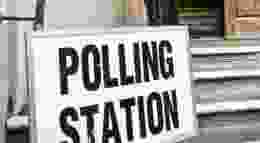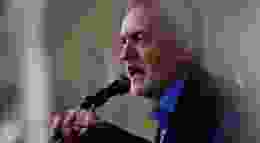
The West faces an enemy both foreign and domestic
Putin's threats are real – the West must respond accordingly, warns Patrick Maxwell.
When Vladimir Putin denounced modern liberalism as 'obsolete' at the G20 summit last month, it was little surprise to the assembled world leaders who have grown used to Russia's verbal threats over the last decade. More perplexing was the tepid reaction of the Western leaders it was directed to. Donald Trump displayed that he is more at home in an autocracy by staying mute. Jeremy Corbyn, who sympathies lie in the same place, was noticeably silent. Again this is no shock, Corbyn's main spin doctor, Seumas Milne, has always taken the side of the anti-Western aggressor. If British leaders are to claim to be liberal, they must start acting like one.
Western leaders have both a choice to make and a challenge to beat. They must choose to stand up for liberal values in the face of anti-democratic forces. They must then put it into practice. This means ensuring that the threat countries such as Russia and China pose is contained, in places such as the Baltics and the South China Sea.
In Estonia, the threat from Russia is both ever-present and yet ambiguous. British troops can be seen along the streets, with four thousand Nato troops in the country. The government puts its money where its mouth is; over 2 percent of GDP is spent on defense, the target of every Nato country. In the palatial surroundings of the Parliament building in Tallinn, one MP tells me that the only reason for this is because of the threat from Putin and his military expansionism, with the shadow of Soviet rule still hanging over the country.
In Britain, the response to Russia is one of benign contempt. The poisoning in Salisbury last year dispelled the old-age notion that 'it can't happen here'. Although the finger pointed solely at the Russian state, Jeremy Corbyn refused to go against his principles and defend British interests. It is a familiar trait, of a leader who has always supported the anti-Western force whenever a conflict is sparked. It is one of the many reasons why he is not fit to become Prime Minister, and puts him at odds with the Labour tradition of Clement Attlee, one of the main proponents of the original North Atlantic Alliance. Corbyn's instinctive suspicion of an imagined establishment means that he will always take the side of anti-Western force.
Donald Trump's hostility towards Western values is of a different variety. For a man who promotes rabid nationalism, the tendency to pander to Kim Jong-Un and Putin displays a further moral weakness. For Trump, the world stage is a playground, a space that he can exploit for personal amusement. American interests have never been his priority, despite the rhetoric and rage. Both Corbyn and Trump are phenomena that for years had been left on the fringes of mainstream political debate. Now that their populist messages and reckless extremism are in the corridors of power, the opposition to Putin's threats is left depleted.
Throughout their respective political careers, both Corbyn and Trump have been fighting a battle against a 'neo-liberal world order' that has supposedly taken over since the fall of the Berlin Wall in 1989 ('an important loss for millions of people', according to Seumas Milne). In their determination to depose it, one's enemy's enemy is always one's friend. If Corbyn is to take power, then any hope of a progressive foreign policy will be forgotten. During the 1980s Margaret Thatcher branded the miners on strike as 'the enemy within'. With a hardline Labour Party in power, the foe will be both inside and out.












